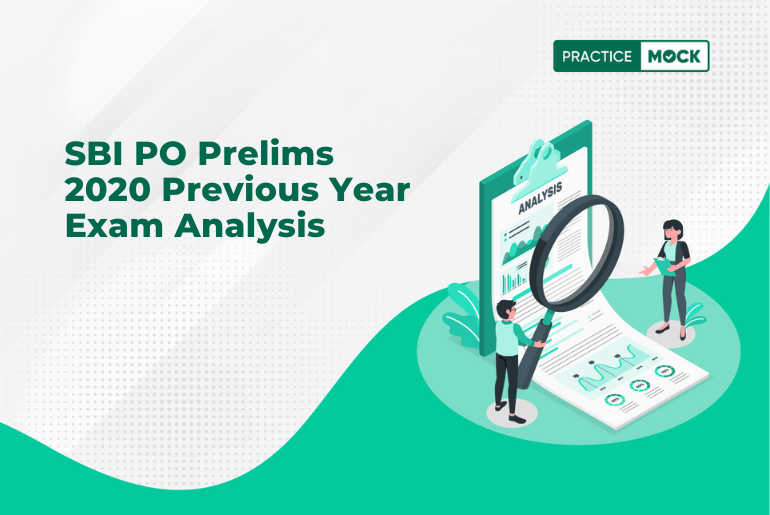SBI PO Prelims 2020: The State Bank of India (SBI) Probationary Officer (PO) Prelims exam is a crucial step for aspirants aiming to join one of India’s leading banking institutions. The analysis of the previous year’s exam provides invaluable insights into the exam pattern, difficulty level, and essential topics.
Understanding the Exam Pattern
The SBI PO Prelims exam typically consists of three sections: English Language, Quantitative Aptitude, and Reasoning Ability. Each section has a designated number of questions and carries a specific weightage in the overall assessment. Analyzing the pattern helps aspirants strategize their preparation effectively.
Insights into Section-wise Performance
Detailed analysis reveals the performance trends across different sections. It highlights areas where candidates excelled and areas that require more focus. For instance, candidates might find that they scored well in the Reasoning Ability section but struggled with the Quantitative Aptitude section, indicating the need for targeted practice.
Identifying High-Scoring Topics
Exam analysis helps identify topics within each section that are consistently high-scoring. By focusing on these topics during preparation, candidates can maximize their chances of scoring well in the exam. For instance, in the English Language section, topics like Reading Comprehension and Vocabulary often carry significant weightage.
Addressing Common Challenges
Analyzing previous year’s exams also helps in identifying common challenges faced by candidates. Whether it’s time management issues or difficulty in understanding certain types of questions, recognizing these challenges enables aspirants to devise strategies to overcome them during the actual exam.
Predicting Trends and Expected Changes
Exam analysis provides valuable insights into potential trends and changes in the upcoming exams. By studying patterns over multiple years, aspirants can anticipate the types of questions, difficulty level, and emphasis on certain topics. This foresight allows for more targeted and focused preparation.
Refining Preparation Strategies
Armed with insights from exam analysis, candidates can refine their preparation strategies accordingly. They can allocate time and resources based on the weightage of each section and topic, prioritize areas of improvement, and tailor their study plans to address specific weaknesses identified through analysis.
Utilizing Mock Tests and Practice Papers
Mock tests and practice papers designed based on previous year’s exam analysis are invaluable tools for aspirants. These resources simulate the actual exam environment, allowing candidates to gauge their preparedness, identify areas needing improvement, and fine-tune their strategies before the exam day.
Conclusion: Leveraging Insights for Success
In conclusion, the analysis of SBI PO Prelims 2020 Previous Year Exam offers a treasure trove of insights for aspirants. From understanding the exam pattern to identifying high-scoring topics, addressing common challenges, predicting trends, and refining preparation strategies, aspirants can leverage these insights to enhance their chances of success in the upcoming exam. Through diligent preparation and strategic planning informed by exam analysis, candidates can embark on their journey towards becoming successful SBI Probationary Officers.
- Sign Up on Practicemock for Updated Current Affairs, Free Topic Tests and Free Mini Mocks
- Sign Up Here to Download Free Study Material
Free Mock Tests for the Upcoming Exams
- IBPS PO Free Mock Test
- RBI Grade B Free Mock Test
- IBPS SO Free Mock Test
- NABARD Grade A Free Mock Test
- SSC CGL Free Mock Test
- IBPS Clerk Free Mock Test
- IBPS RRB PO Free Mock Test
- IBPS RRB Clerk Free Mock Test
- RRB NTPC Free Mock Test
- SSC MTS Free Mock Test
- SSC Strenographer Free Mock Test
- GATE Mechanical Free Mock Test
- GATE Civil Free Mock Test
- RRB ALP Free Mock Test
- SSC CPO Free Mock Test
- AFCAT Free Mock Test
- SEBI Grade A Free Mock Test
- IFSCA Grade A Free Mock Test
- RRB JE Free Mock Test
- Free Banking Live Test
- Free SSC Live Test



